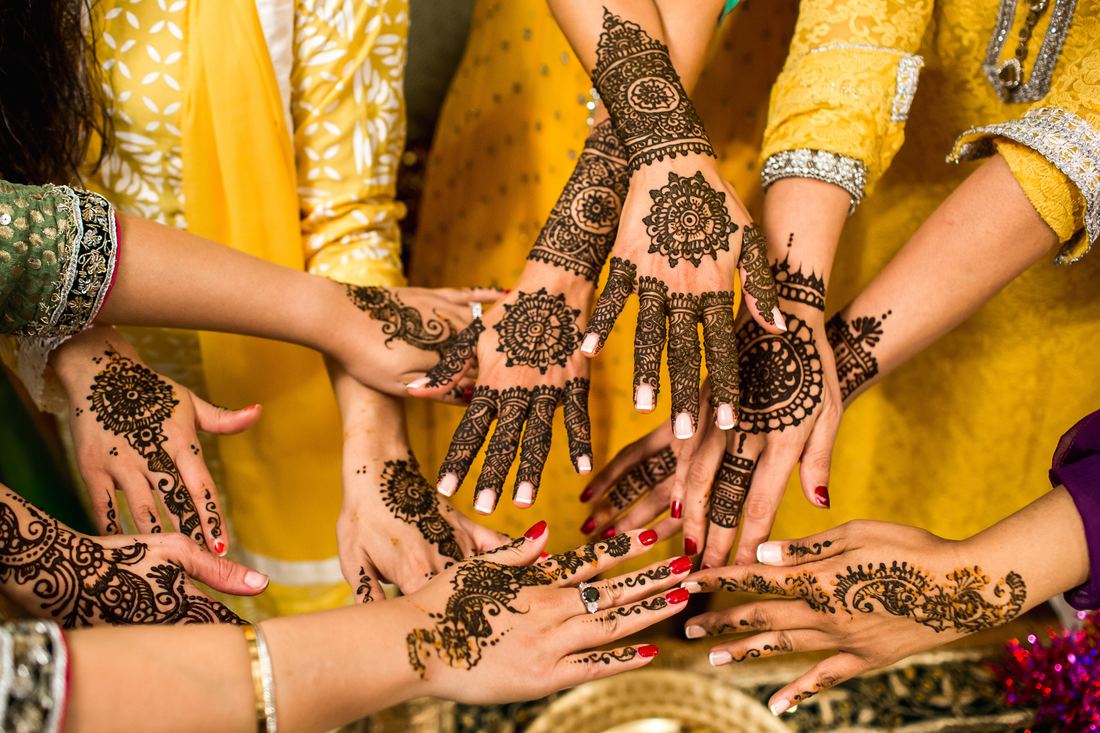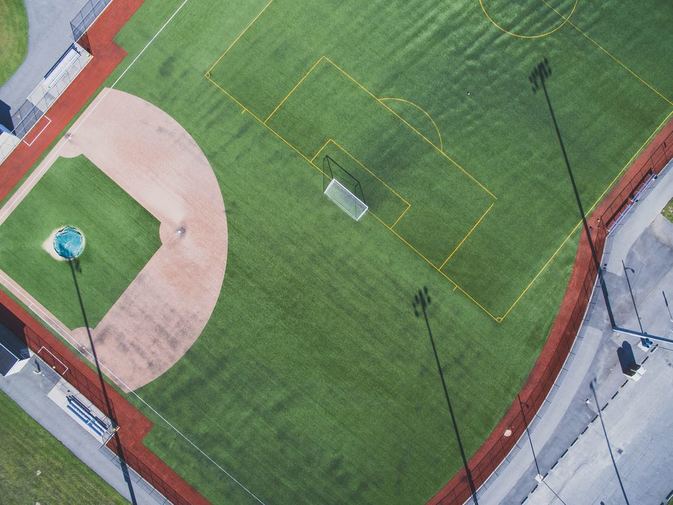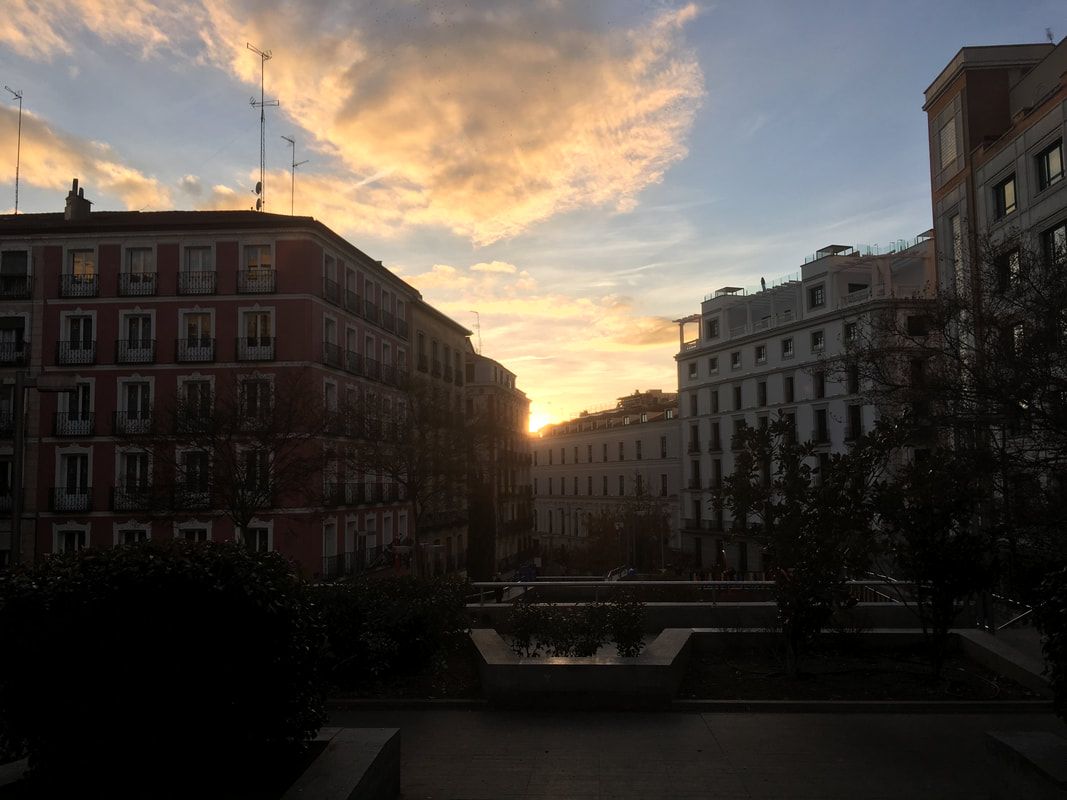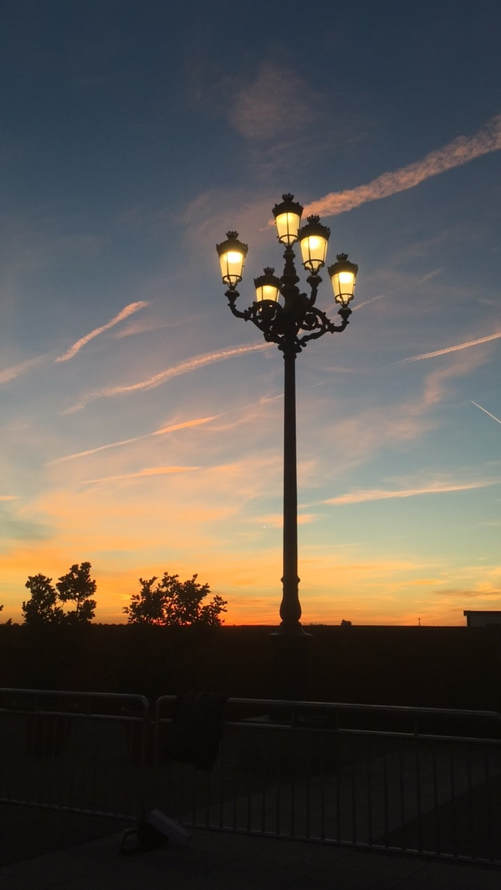|
I have often struggled with this universal teaching, and more specifically, with this concept as presented in the Bible through the teachings of Jesus Christ. When first presented with the idea of "loving your enemies," I often find myself going down the road of why do they deserve it?, why should I "waste" my energy to extend love towards people that do not see me favorably?, I have trouble enough loving all the people I feel deserve and reciprocate my love. You see, the inner dialogue confronted when one begins to explore this concept is certainly not the easiest to simply disregard. Over the years, as I have continued to grow and often stumble in my spiritual practice, in my purpose pursuit of mindful discernment, I have come to see this piece of universal wisdom in a slightly more optimistic and rather "doable" light. So begs the question What has led me to see this advice through different eyes? And Where does one actually begin? In an answer to the first question, I will say more than anything, more than my study of scripture, my daily moments of prayer, my evenings of asana and reflection, what has drawn me to see the act of "loving your enemies" as not only possible, but necessary has been MY PATIENTS. As clinicians I don't think we pause and reflect enough to recognize what is actually being birthed and transformed in the VERY SPACE between doctor and patient. We can easily forget the immense vulnerability of our patients, often times bearing their deepest traumas and personal self loathing as we sit back and wander off into constructing a differential diagnosis. For as I see it, "Loving Your Patients" is actually a deep act of "Loving Your Enemies" What did you just say? Yes, loving your patients and honoring the vulnerable space that can either be one of healing or one of further fragmentation involves the act Jesus so eloquently taught: Loving your enemies. Now to bring context to this statement, I am not saying as a clinician and healer, your patients are your enemies, not at all. What I am actually referring to is much more akin to "Loving Your PROBLEMS" or in this case, the fragmentation and hurt of our patients. As I mentioned above, as you start to enter the vulnerable space between clinician and patient, you can certainly focus and find the superficial symptoms or other distracting scars, OR you can start to discover the root reasons behind this person's suffering. You can unearth childhood traumas, periods of absent love, acts of self destruction, negative self talk, and the list goes on and on. Being gentle and loving these potentially destructive and self defeating thoughts, the acts of self sabotage and self care gone astray, loving the aspects of the patient they most desperately wish they no longer possessed requires a deep act of LOVE, and one perhaps, both clinician and patient would choose to just ignore. When we discover the past trauma, the periods of absent nurturing presence, the fear of our patients, their reactivity, and the projection of our patients' frustration and cynicism into our lives, do not run away, do not get defensive, for YOU HAVE FOUND PRECISELY WHAT NEEDS THE MOST ATTENTION AND LOVE. Fill the voids of your patients with presence and compassion, be gentle towards the parents, partners or strangers who may have enacted deep acts of hurt or even hatred upon your patient for they too likely suffered the same insults and simply transmitted the fear, the hatred, the loathing into another generation. As we come to understand the complex world of epigenetics and the regulation of genetic expression, trauma, absence, fear and disdain are not simply transmitted through families as part of deeply embedded and maladaptive psychosocial frameworks, they are altering the expression of our genetic code and changing our core physiology: the terrain itself which the soul must traverse. As I bring this post to close, I want to bring this back into the universal, extending my description from the clinician and patient dynamic into the world of simple human connection and relation. Every day you will be greeted by antagonists, problems, challenging people and unfortunate circumstances.
What if the next time you are faced with an act of hostility or hurtful misunderstanding, instead of responding to the individual with an equivalent level of hurt and hostility, you start to truly see the place from which the hostility emerged and start asking the questions: Who hurt you? Who was not there for you? What about yourself do you not love and accept? and How can I fill these voids or replace these hurts with love and understanding? You see, "loving your enemies", or love at all for that matter doesn't have to be about hugs and kisses. For Love, as He knows it, was never meant to involve touch at all.
0 Comments
How Do You Prepare For Gameday? Okay, I’ll admit, while I have drastically reduced the amount of time and energy I put into following sports, most of my life has been spent absorbed in the fascinating world of athletics, both as a competitor and as an engaged fan. Sports are arguably one of the most ubiquitous endeavours on the planet, and despite ESPN and other TV providers attempts to steal your attention away from other perhaps more noble pursuits, there is something to be said about joining a raucous crowd, and going absolutely bananas with people you may never see again in your life. Sports are sports, and sports are here whether you like them or not. So why am I starting this post talking about sports? Is there going to be anything medical about this at all? Short answer, no, nothing strictly medical. Longer answer, still no, but what I am about to share with you transcends the well defined boxes of sports or medicine and opens us up to a curious discussion of how did we find ourselves in these boxes in the first place? If you read the title of the post, and have a more athletic mindset, your mind may be thinking of some very practical ideas on how to “prepare for gameday.” For the true fanatics, this may involve acquiring food and beverages to enjoy on a comfy couch with friends, or perhaps it involves getting on your computer to pick your fantasy team for the upcoming weekend’s slate of games. Perhaps it involves washing those smelly socks and undergarments so your son or daughter has something at least slightly clean to wear before tomorrow’s game. Or maybe even still, it involves getting yourself as far away as possible from family who may be more inclined to throw sharp or heavy objects as part of an emotional explosion during the big game. There are lots of ways to prepare, and lots of “Gamedays” for which we could be preparing. Which begs the question, What really do I mean by “Gameday”? Thinking back to my childhood where it seemed I was never NOT kicking a ball, wearing a glove, or putting on a pair of athletic shoes, Gameday carried a very literal connotation. There was the physical preparation, the pregame meal, the team warm-up, reviewing the line-up and strategy, the final pause before everything began. Some people on my team had intricate pregame rituals, listening to the same songs on their I-Pod, putting on their shoes in the exact same manner, engaging in a reflective prayer, finishing the warm-up by touching the backboard. You name it, it was part of the preparation for Gameday. And while some of these odd rituals or practices may seem just that, the reality was, there was little judgement when it came to preparation for Gameday. You didn’t talk to your friend who was absorbed in his pre-game playlist, you didn’t stop your friend from being the last one to lay the ball in the basket, you didn’t bat an eye while you waited for your friend to finish lacing up his shoes and extend his thanks to God. It was “Gameday.” And that’s all that mattered. Reflecting back on those years, it’s amazing to think about the unconditional acceptance of people’s practices and it’s fascinating to see the impact television has had in shaping the pregame rituals of our youth. Do you really think that 12 year old learned how to step into the batter’s box and hold out his hand from a coach or a book? We as humans are master emulators, and masters too of unconsciously assimilating the habits and practices of our heroes and peers. And as I mentioned before, no pregame ritual or preparation is TOO odd. Whatever you have to do, you just do it. No one questions Lebron when he kicks of a game with a cloud of chalk. No one questions the pitcher who juggles the Rosen bag prior to the first pitch. And while no one judges our athletes on how they prepare for “Gameday,” we also forgoe perhaps the most important question we should be asking ourselves How am I preparing for MY “Gameday”? Yes, I said it. Your “Gameday”
Not Lebron’s or Bryce Harper’s “Gameday.” Your “Gameday”. Now some of you may have slipped back into sports mode and thought once again about how you prepare for your athletic competitions, but that’s not really YOUR “GAMEDAY.” Your “Gameday”, you see, is the playground for your life’s calling, the blank canvas for your embodied artistry, the perfectly polished stone ready to be tossed across the hauntingly still pond. Your “Gameday” is your opportunity for growth, your opportunity to succeed and fail, to make mistakes and get dirty, your opportunity to relate and connect with others in ways you didn’t think were possible. Your “Gameday”, you see, is YOUR EVERYTHING, so why in the world do you show up like its just YOUR SOMETHING or even worse, YOUR JUST ANYTHING? You cannot prepare for what you do not know, and you cannot know without some time to prepare. Many of us have at least taken the steps to discover our passions, to follow our hearts and live out our callings. The problem, is we don’t see our callings as GAMEDAY, and as such we don’t have any clue on how or why we should prepare. Some of us are still searching for our playing fields, seeking out our true Gamedays, and are even perhaps playing on baseball diamonds with more rocks than blades of grass and soccer fields that haven’t seen nets for 20 years. But just because you don’t know where your Game is being played, or are stuck playing in a Game you wish didn’t exist, doesn’t exempt or excuse you from preparing, for showing up, for readying your heart for what you do not yet know. I will be honest and say despite my dedicated yoga practice, my constant reflection and my perspective of purposeful intention, I have only recently started to see my calling, my work as a family medicine physician as “My Gameday”, and as such have just started to dutifully pursue proper preparation for “My Gameday.” Let’s get real, do you think Lebron is going to show up 5 minutes before the game is about to start having downed a double espresso and half a bagel with cream cheese after navigating through rush hour traffic with one eye still glued shut after 5 hours of restless sleep? Yeah, it’s ridiculous, but what I just described to you is how WE are showing up, how we are preparing for our work. So WHY IS IT OKAY?!? My calling as a healer is to craft and hold spaces for patients to discover what they must let go in order to heal, and fully embrace what they must bring into their being to restore their joyful nature. This does not happen by accident, this does not happen running on Red Bull and bagels, this does not happen while ruminating on how to tell your mother she could have loved you more. We must get serious, we must get playful, we must be intentional, we must become AWARE. The remainder of this post could involve me telling you how to prepare for Your “Gameday,” but that would be waste of space and your time. What you need, and we need is a roadmap, a simple process to realize this preparation and live our “Gameday.” So here it is 1. Discover “Your Gameday”. In this moment “Your Gameday” may not be your calling, and may indeed involve getting scrapped by rocks as you slide into second base, but you need to get quiet, take pause, and discover “Your Gameday,” wherever that may be. Don’t get moody or angry about it. Pros prepare and show up no matter the conditions. Amateurs come up with excuses on why the game shouldn’t be played. What do you want to be? 2. Begin Your Preparation But I still don’t know my “Gameday”? What’s the point? The paradox of preparing for Your “Gameday” is that you will have to and will likely spend months or years preparing for Your “Gameday,” before you ever discover where in the world the game is being played. My suggestion, get quiet, rest your mind, and start to breathe. I don’t care if it’s 10 seconds or 10 hours. Get Quiet, Rest Your Mind and Start to Breathe And if you are one of the lucky ones who knows Your Gameday, start walking the pitch, start inspecting the grass, walk every inch of the diamond before you ever touch a glove, and never for second think you know enough to stop. Evaluate what you are doing now, what are you eating, how much are you sleeping, what do you listen to on your ride in to work, what is the last thing you read or say before you go to bed. How many times do you say I love you? The Beginner’s Mind will be your friend and will never stop the pursuit of preparation. 3. Just Do It Nike got it right with this ubiquitous slogan and the truth is preparation is only preparation if you decide to play the game. We cannot spend our lives perfecting what cannot be perfecting, or planning for what cannot be foreseen. We must live our callings and carry out our work knowing we will make mistakes and we will miss things we “shouldn’t” have missed. But guess what? Growth doesn’t follow from perfect practice. Perfect practice comes when see that it’s possible to grow. So, How do you prepare for “Gameday?” Maybe it’s time we all start playing a little ball. Okay, if you’ve read the title to the post, you are probably wondering where in the world is this going. In truth, I don’t really know, but stick with me for 1000 or so words and I think we will both find a degree of enlightenment. Band-aids, first of all aren’t really things. It’s a brand. #registeredtrademark. Really what we should be talking about are bandages. Adhesive bandages. BUT Johnson and Johnson have done the pinnacle in business marketing, essentially making their brand the item in question, or at least making them nearly indistinguishable. Because we are on this tangent: other common examples of this brand = item thing include “Kleenex” for tissues and i-Pod for multimedia technological device? (used to just be an mp3 player, goodness where are we now). For the remainder of this post I will use Band-aids, not because I support Johnson and Johnson, but because it will likely make things WAY easier to explain for you and me. So why really do we wear Band-aids? Some obvious and practical answers may be: to protect a wound, to stop bleeding or to promote healing. But as you likely I have guessed already, I am not going to waste your time writing a blog post about these reasons, I’m instead going to waste your time writing about something a little more abstract and controversial. Terrible jokes aside, I think there’s something we need to throw out there to break the ice about this whole Band-aid discussion. Why are Band-aids the same color as most white people’s skin? There I said. Band-aids could be any color, and yes there are seemingly hundreds of varieties with all sorts of colors and cartoon characters out there, mainly marketed to children, but let’s just be honest with ourselves, Band-aids are tannish white. Period. I’m not going to spend any time in this post addressing why this choice of Band-aid color may be odd, because yes, the next question could very easily be, “Where are the brown or black Band-aids?” I’m not going there, but let’s just say it’s a conversation starter. Back to the original intent in making the point about white Band-aids, perhaps Band-aids are tannish-white because people don’t want others to see their wounds? or Don’t want others to see they are hurt, injured, in pain or suffering? Now we can all agree, these Band-aids, even being somewhat close in color to white skin, are still fairly obvious and it doesn’t take much to notice one on another human being. So that begs the question:
Do we wear Band-aids so people DON’T see that we are physically hurt, needing protection and trying to heal? OR Do we wear Band-aids so people DO see that we are hurt, needing protection and trying to heal? Either way Band-aids can speak without us ever saying a word. Only problem: we aren’t able to control what it is people think we are actually trying to say. I obviously don’t have answers to these questions, but we need to start asking them and recognize the implications of this discussion. On one hand, If we DON’T want people to see that we are physically hurt, a tannish colored Band-aid for a white person would be a reasonable place to start. On the other, if We DO want people to see that we are hurting, than a neon pink or “Paw-Patrol” Band-aid would probably be the best bet, but even a regular old Band-aid as we described above would likely still do the trick. Either way, what I am describing here is either showcasing or hiding PHYSICAL wounds, injuries to the skin, soft tissue, etc. This leads me to the climatic question for this post: If we have Band-aids for these physical wounds, carrying the capacity to either tell people we are hurt or hide it from their knowledge What kind of Band-aids do we have for Spiritual wounds? Emotional? Mental? Financial? How can we show people that we are hurting spirituality, emotionally, mentally and have them take notice? I’ll take one tiny step out on a limb and say in general as relational human beings, we don’t want to remain hidden, we WANT people to see our JOY and our PAIN and either celebrate with us in joy or help us back from that place of hurt in order to rediscover that place of pure happiness. We want other people to see we are hurting without having to tell them because we want to know they genuinely care and that we are not overlooked. I can personally say during even the darkest days of my depression, isolating myself to only my work and the things I could control, I wanted people to see I wasn’t well and simply ask: “Are you Ok?” Society with a capital S (a big generalization) has created a lot of stigma around what are acceptable “Band-aids” to wear when we are emotionally or mentally hurt. That’s not OK Suicide letters, suicide attempts and violent cries for help seem a lot more rational and reasonable when you realize there are no great “silent” or accepted Band-Aids to say “I’m hurting and need some help,” AND that in general we aren’t great at genuinely seeing the Band-aids people choose to wear to show they are suffering. What if as a Society, we made an effort to first become more aware of the people around us, being willing to see the Band-aids people are wearing or “not wearing” to say I’m in need of healing. And what if, as a Society, we made a dedicated effort to be more open, more trusting, more accepting so that we could actually use Band-aids for their intended purpose. Not to hide or cover up the hurt we don’t want people to see. Not to confuse people as to what is really going underneath the adhesive strip Not to inhibit the process of healing and growth that can only occur when we peel back the glue and let the light stream in. But, to let ourselves and other people know we are not invincible, and we will need much more than a little Band-aid to ever come close to knowing what is means to be healing, healthy and whole. What you will find below is an email I sent to the incoming class of medical students at the University or Virginia School of Medicine back in August 2017. To say I remember how all the words came into being would be a frank lie. It was, indeed, a bit of a spiritual experience. While most of you reading this introduction are not medical students or have no affiliation with medicine or medical training, my intention of sharing this message is ACTUALLY FOR YOU. Yes FOR YOU. Because, let’s be honest I already shared it with the medical students. So why am I sharing this with you? Humanity's language of caring is universal and while the words below may have been initially intended for my medical colleagues, there is a meaning and message embedded that is meant for every soul interested to explore its mystery. So if you are willing and curious, let’s start the exploration together. Welcome to Charlottesville and the UVa SOM! By now you have probably received an epic number of emails and are perhaps overwhelmed with all of the information being thrown your way. It's okay. It's completely an entirely okay. You are also probably also wondering now who is sending us this random welcome email? My name is Rob Abbott and am a first year family medicine resident with VCU Shenandoah Valley in Front Royal, Va having just graduated with the UVa SOM Class of 2017. With those details out of the way I can tell you who I really am. I am a student, a human being, a medical trainee just like you, seeking to relieve other’s suffering all the while serving something greater than myself. It is hard to imagine that just some few years ago I was spending time in the anatomy lab (the old, not so clean and nice one) identifying brain structures with my classmates and learning all of the amazing biochemical machinery necessary to make ATP from 1 molecule of glucose. And while time does go quickly, it also doesn't. 4 years is a long time, and for some like myself who took 5 years total, it is even longer, and for others doing PhD and research work it can take a decade or more. It's a long time. Thinking months and years ahead is wonderful (even if it seems like graduation is so far away) and having an intention and vision for yourself is incredibly powerful, but the future is not years ahead. The future is actually just the summation of the present- what we do each and every day. Want to be a kind and compassionate physician? Be kind and compassionate each and every day. Want to eat more vegetables and less processed food, eat a couple vegetables and put down the doritos each and every day. Yes, these may seem like obvious or silly examples, but they are remarkably relevant and true. In a more abstract sense, I like to think that we are all people transitioning between states of “being,” “becoming” and more “being”. If we simply remain in states of transition, expansion and growth ("Becoming") or thinking about who/what we want to become (skipping the challenging becoming process and going straight to some "new" state of being), we completely miss the present moment, our current state of being, the opportunity to enjoy the present and simply be. Medical school will be full of opportunities to become- you will be evaluated constantly as part of this challenging process of becoming. Learning something new every day is becoming, studying for a summative is becoming, gaining more clinical insight during your 3rd year clerkships (at 5 AM) is becoming. Becoming is okay, we need becoming, but we also really need being. I spent most of my early life becoming, and only becoming, because I was good at it. If you are receiving this message now you are also very likely to be quite adept at becoming. But it wasn't until I took time away from this becoming, to rest and discover how to truly be, that I could ever make peace with the becoming process. What does being look like? For me it's engaging in creative exploration through writing, recording podcasts for my webpage, spending time in nature, meditating, practicing yoga, reading non-medical literature, growing my Christian spiritual faith and sharing a hot beverage with a close friend. There are tons of ways to be, but often, these ways of being can fall away to make room for becoming and only becoming. I know this may sound strange or impossible given the fact that I haven't met any of you in person, but I genuinely care about all of you. I want you to happy, healthy and free from suffering. I want you to succeed and be surrounded by joy. I know medical school is challenging, but I also know it can be incredibly rewarding.
You may get to a point during your training where you feel hurt, depressed, depleted, tired, burned out, exhausted, disillusioned, physically sick, or broken. It's okay 4.5 years ago I was depressed, hurt, sick, depleted, simply done. It took a long time for me to finally ask for help, but I did. I simply asked for help. I finally accepted it was okay to be vulnerable, to say I didn’t have the answers. There are so many people in this community here to support you. Deeply and truly support you. By this point, you have probably received a message from two of my close friends and current students Anja Miller and Corinne Roberts regarding the interdisciplinary group Compassionate Awareness and Living Mindfully (CALM): an inter-professional group dedicated to supporting your well being though the practices of mindfulness, self care and the cultivation of resilience. Back in 2013, upon my return to medical school, I was fortunate to start this group with the help of a few amazing colleagues and friends. I had never "gone to school," for mindfulness, self care or inter professional communication. I had no formal training. i had no idea what to really do. But I started the group because I perceived a deep need in our community to remain healthy and build resilience through mindfulness practice and simply being. I didn't care if only one person started meditating with me or if no-one came to any of our events. I just wanted people to know we cared about their well-being. I understand meditation or mindfulness practice would not and may not be your thing, it's okay, we are all okay. Over the past 4.5 years I've seen tremendous strides made in the UVa School of Medicine to prioritize your well-being, to promote and provide you with opportunities to renew and simply be. I helped to grow partnerships with the School of Nursing to hold retreats, FREE retreats, and days of self care to promote your flourishing. Once again, it’s amazing to see all that can happen in 4.5 years. When I first came to school I hadn’t even heard about yoga, meditation, reflection, or mindfulness. If you had asked my first year self if sitting still for 5 minutes to pay attention to my breathing or pausing outside of a patient's room to set an intention for the encounter would make any difference I would have likely laughed you off the face of the Earth. And when I first started practicing at the urging of a colleague and dear friend, I didn't fully believe in it. I wasn't really convinced. But I just started practicing. Just practice, even if you don't believe. I cannot guarantee you will find the practices of mindfulness and meditation to be helpful. Nothing is right for everyone, and everything is certainly not right for everyone, but SOMETHING is right for everyone, and you should seek to be exposed to a buffet of SOMETHINGS as part of your medical training, all for you to consider, practice and incorporate into your life. To say I am excited for you would be a tremendous understatement. But THIS is only the beginning, and YOU ALL are the lights to help change the lives of your patients, and to hold spaces for each other to learn and be nourished, to become and to be. As you will soon discover, a collective stress bucket will develop in your medical school class, a figurative and sometimes literal bucket of worry. I urge you to the best of your ability to TRY and not add to the collective stress bucket, recognizing the sometimes, most likely completely unintentionally, that you will add to someone else’s burden and this stress bucket. We simply must be aware and take ownership of the energy we carry, the words we use and the spaces we hold. Make a joke about how much work you have left to do, how stressed out you are, or how poorly you will do on a test because you haven’t studied enough, it’s okay, it’s probably funny, but take ownership of it, be willing to accept the consequences of sharing those kinds of words, carrying that type of energy, holding that type of space. While I may have formally graduated and "left" the medical school, my heart and soul remain in these walls and with this community. You are all amazing people with so much passion, intelligence and drive to change the world and I want to do all that I can to promote your flourishing. If you have made it this far in this message, I commend and appreciate you. I am still quite local and active in the Charlottesville community, returning on weekends when I am not busy with residency obligations in Front Royal. I am more than happy to meet, talk and simply listen to whatever it is you want to share or discover. You can respond to this email or simply bug Jill Clarke. She knows how to find me. But in all seriousness I am more than happy to meet and share a conversation over a cup of tea/coffee. I’ve been there. I get it. I needed help, lots of help and I am willing and open to talk with you if at some point you need help. No judgment. Complete acceptance. You guys have an amazing journey ahead of you and some remarkable people with which to share it. Don't be in a rush. Remember that if you are alive, you are breathing and if you are breathing, you can stop to take a pause. Congratulations and welcome again. I am so glad you have made this choice to pursue medicine. And I look forward to seeing you flourish in the years and experiences to come. All the best Rob Abbott It takes 4 minutes and 30 seconds. Unless I trip and fumble for my badge. Then it take 4 minutes and 32 seconds. 4 minutes and 30 seconds. People run miles faster than this. But my intention is not to run or to even walk. My intention is to be, breath and simply be, It starts with a phone call. Can you see another for me? Room 19, 72 year old female, looks like a COPD exacerbation, maybe a new pneumonia. Call me when your done. “Okay, sounds good, will do.” For the next 84 seconds I prepare for the pause. I scour the electronic medical record for vitals, white count, current meds, what did the ED doc do anyway? I even get a a glance at the CXR, seems like another overread. And then its over. 84 seconds is all its takes for me to realize the real answers I need aren’t in the chart. They will never be in the chart. Unless I decide to put them there. And then it begins. The 4 minutes and 30 seconds began to tick. I grab my white coat, pocket my phone, double check for my keys, and scoop up my stethoscope. I start to walk. I notice the heaviness now of my burdened white coat, stained with the tears and spit up of infants. Badges of honor I like to think. Telling the stories of past hugs and cuddles gone awry. I shrug my shoulders mid stride, and complete the roll of my scapula back to where they should have been all along. There’s no time for tight trapezii during the pause. I start to notice the ground beneath my feet, my minimalist shoes gripping my toes like a 2 year old hugging his ice cream cone. The ground never felt so alive. I’m nearly 2 minutes in now, 3 staircases down and I’m on to flat ground. I begin to smell the Subway stench, the half baked bread, and half eaten sandwiches beckoning to the adventurous souls willing to wander from the comfort of the cafeteria. 3 minutes now and I’m in the lobby. There’s a four maybe five year old kid running towards the gift shop. He just saw the giant panda. And it’s about time someone fed him some bamboo. I start to smile as I round the corner, the chapel calling to my heart, reminding me it’s time to center. There’s only one minute left. And I’m still half full. One deep breath in, And a heavy sigh out, I feel the weight begin to lessen As the space becomes a void And the void becomes an awareness. That the emptying has now begun. My heart erupts to open As my mind chooses to close Thoughts start to flee for safety In the bowels of my unconscious. There’s no room for petty attachment In the world of empty freedom. 4 minutes. I feel it churning, burning, yearning to remain unseen Judgement and hurt never dress for the party, you see. They found out long ago That the best way to remain unseen is to wear no clothes. The only problem? Judgement and hurt forgot one thing: One very important thing. Naked can see naked There's no place to run and hide 4 minutes and 30 seconds And I’m naked at your beside. My body become a vessel To receive your heart and fears It’s what the moment calls for A pause to find my ears. |
The MessageDedicated to the flourishing of your being Archives
November 2018
Categories |






 RSS Feed
RSS Feed